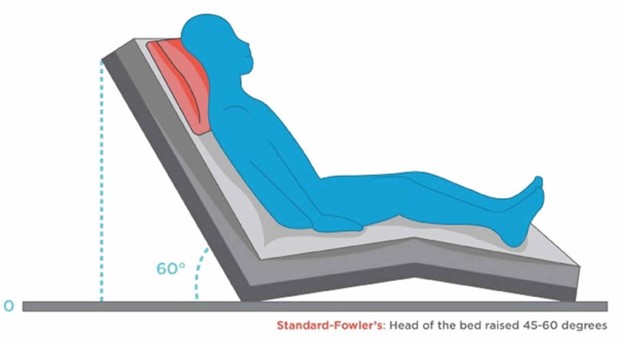A nurse is preparing to administer several medications to a client. Which of the following data should the nurse plan to use to confirm the client's identity?
The client's room number
The client's admitting diagnosis
The name of the client's next of kin
The client's telephone number
The Correct Answer is D
The nurse should plan to use the client's telephone number to confirm their identity. This is because the telephone number is a unique identifier that is directly associated with the client and can be easily verified. By comparing the client's telephone number with the information on the medication administration record or electronic health record, the nurse can ensure that the right medication is given to the right patient.
Explanation:
a) The client's room number is not a reliable method to confirm the client's identity because multiple clients may be assigned to the same room, and there is a possibility of room changes or transfers.
b) The client's admitting diagnosis is not a suitable method to confirm identity as it does not provide specific information about the individual patient.
c) The name of the client's next of kin is not a reliable method to confirm the client's identity as it refers to a family member or emergency contact, not the client themselves. Additionally, next of kin information may not always be up to date or readily available.
Nursing Test Bank
Naxlex Comprehensive Predictor Exams
Related Questions
Correct Answer is B
Explanation
Crackles in the lungs indicate that the client is experiencing fluid overload. When there is an excess of fluid in the body, it can accumulate in the lungs and cause crackles. The other
a. Fever is not a sign of fluid overload.
c. Bradycardia (a slow heart rate) is not a sign of fluid overload.
d. Flattened neck veins are not a sign of fluid overload; distended neck veins may be a sign of fluid overload.

Correct Answer is ["A","B","D","E"]
Explanation
The nurse should stop the transfusion, place the client in high-Fowler's position, obtain a prescription for a diuretic, and administer oxygen to the client. These actions can help manage the symptoms of transfusion- associated circulatory overload (TACO), which can occur when a client receives too much fluid too quickly during a blood transfusion.
c. Administering epinephrine is not an appropriate action for managing TACO. Epinephrine is used to treat anaphylaxis, which is a different type of transfusion reaction.

Whether you are a student looking to ace your exams or a practicing nurse seeking to enhance your expertise , our nursing education contents will empower you with the confidence and competence to make a difference in the lives of patients and become a respected leader in the healthcare field.
Visit Naxlex, invest in your future and unlock endless possibilities with our unparalleled nursing education contents today
Report Wrong Answer on the Current Question
Do you disagree with the answer? If yes, what is your expected answer? Explain.
Kindly be descriptive with the issue you are facing.
